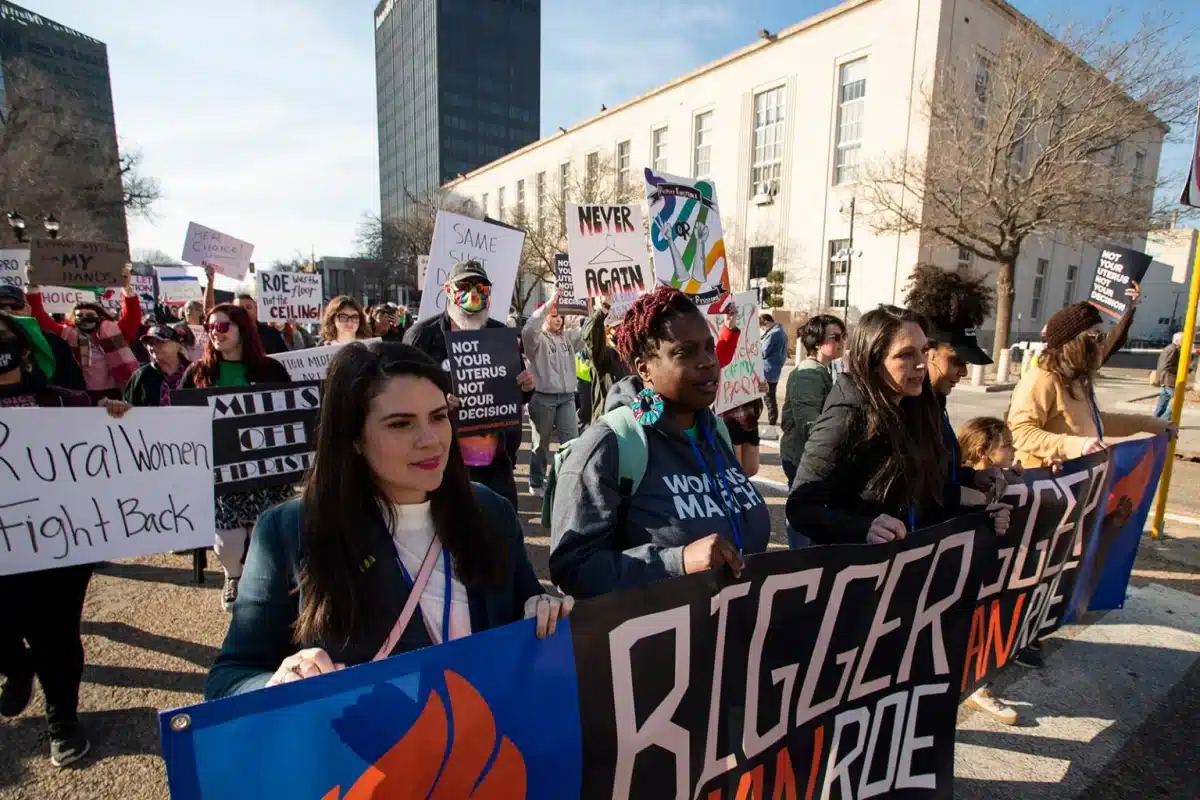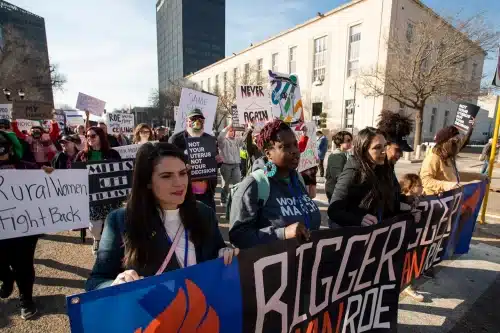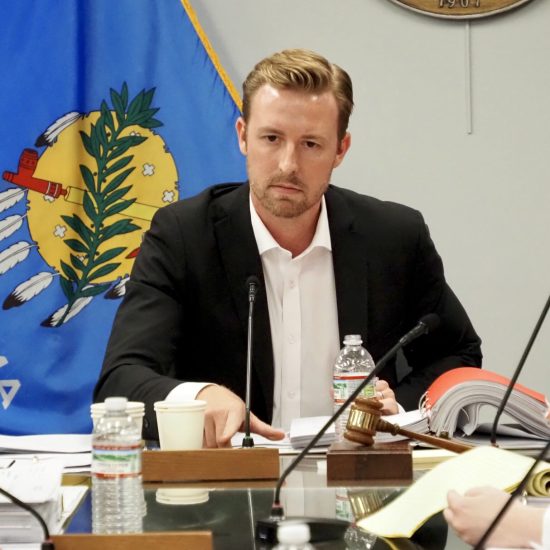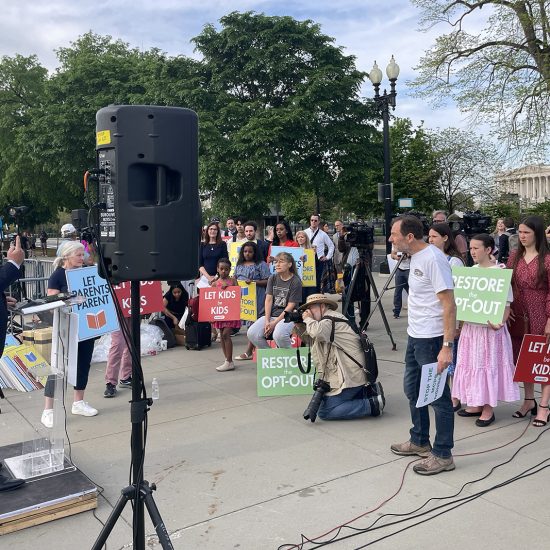
(RNS) — Beginning Saturday (April 15), abortion rights groups assembled a series of rallies and protests in defense of mifepristone, an abortion pill a federal judge in Texas sought to suspend. Leading the charge are notable religious coalitions of Jews, Catholics, and Hindus, as well as many ecumenical Christians.
These faith groups insist that Judge Matthew J. Kacsmaryk’s ruling last week — like the U.S. Supreme Court’s ruling in Dobbs vs. Jackson last year — is motivated by a sectarian version of Christianity that tramples over their beliefs that abortion is religiously permitted.
“The idea that a court would determine when life begins reflects a narrow view of one religion and imposes Christian nationalism on all of us,” said Shannon Russell, policy director for Catholics for Choice, an abortion-rights advocacy group that dissents from the Catholic Church’s official position on abortion.
Catholics for Choice members will be among those rallying in front of the Supreme Court in Washington, D.C., Saturday, as well as in cities across the nation, as part of a weekend of action around abortion rights.
Most immediately, these religious groups are protesting Kacsmaryk’s ruling, which invalidated the Food and Drug Administration’s approval of mifepristone more than 20 years ago. On Friday (April 14), the U.S. Supreme Court temporarily restored full access to the abortion medication and may review the case before its summer recess. (A federal appeals panel earlier this week limited the distribution and access to the abortion pill.)
U.S. Catholic Bishops in a written statement said they hoped for a final resolution that “will result in removal of chemical abortion from the market altogether.” The Southern Baptist Convention’s ethics arm also hailed Kacsmaryk’s ruling.
“As Christians, our advocacy must continue until every preborn life is safe from annihilation and every mother is protected from a predatory abortion industry,” Brent Leatherwood, president of the Ethics and Religious Liberty Commission, said in a statement.

People march in front of the J. Marvin Jones Federal Building and Mary Lou Robinson United States Courthouse to protest a lawsuit to ban the abortion drug mifepristone, Feb. 11, 2023, in Amarillo, Texas. (AP Photo/Justin Rex)
Twenty-one states have had abortion restrictions or bans introduced in their legislatures this year in the wake of the Supreme Court decision overturning Roe v. Wade, the ruling that guaranteed a constitutional right to abortion. Twenty states have passed protections for abortion.
Still, nearly two-thirds of all Americans (64%) believe abortion should be legal in all or most cases, according to polling from the Public Religion Research Institute.
Religious groups advocating for abortion rights point out that though they may not represent the majority of Christian evangelicals, they do represent the majority of Americans.
“This idea that to be a person of faith means you’re anti-abortion is a narrative constructed for political gain,” said the Rev. Katey Zeh, CEO of the Religious Coalition for Reproductive Choice. “It’s something we have to challenge. It’s not going to end here.”
These groups are pushing back against the prevailing view that abortion is religiously forbidden. Judaism, for example, does not believe the fetus is considered a person with full human rights until it is born. Other people of faith also interpret their sacred teachings differently.
Not only are the plaintiffs in the abortion pill case Christian — the case was filed by the Alliance Defending Freedom, the conservative Christian legal advocacy group — so is the judge.
Abortion rights groups pointed out that the language in Kacsmaryk’s ruling is infused with tropes used by anti-abortion Christians. Instead of using the more neutral and scientific terms “embryo,” or “fetus,” the ruling uses “unborn children” and “unborn humans.” It refers to abortion providers as “abortionists,” and to the medication as “chemical abortion.”
Kacsmaryk recently served as a board member of Christian Homes and Family Services, which provides housing for unwed pregnant women, The Washington Post reported.
He also worked for the First Liberty Institute, a conservative Christian legal activist group, before former President Donald Trump appointed him to the bench in 2019. While at the Liberty Institute, Kacsmaryk wrote critically about Roe v. Wade.
“This is part of a much larger political agenda to dismantle our democracy in the name of Christianity,” Zeh said.
On Monday, interfaith groups for abortion rights will be in Tallahassee, Florida, to protest a new law that bans abortion after six weeks. Gov. Ron DeSantis signed the legislation on Thursday.
U.S. Rep. Kathy Manning, D-N.C., was on the National Council of Jewish Women’s webinar this week urging the group to continue its work.
“This is an extremist view of when life begins that is not part of our particular religion,” said Manning, who is Jewish. “So I think it’s important for us to advocate because we’re good at it and because it’s part of our values.”






